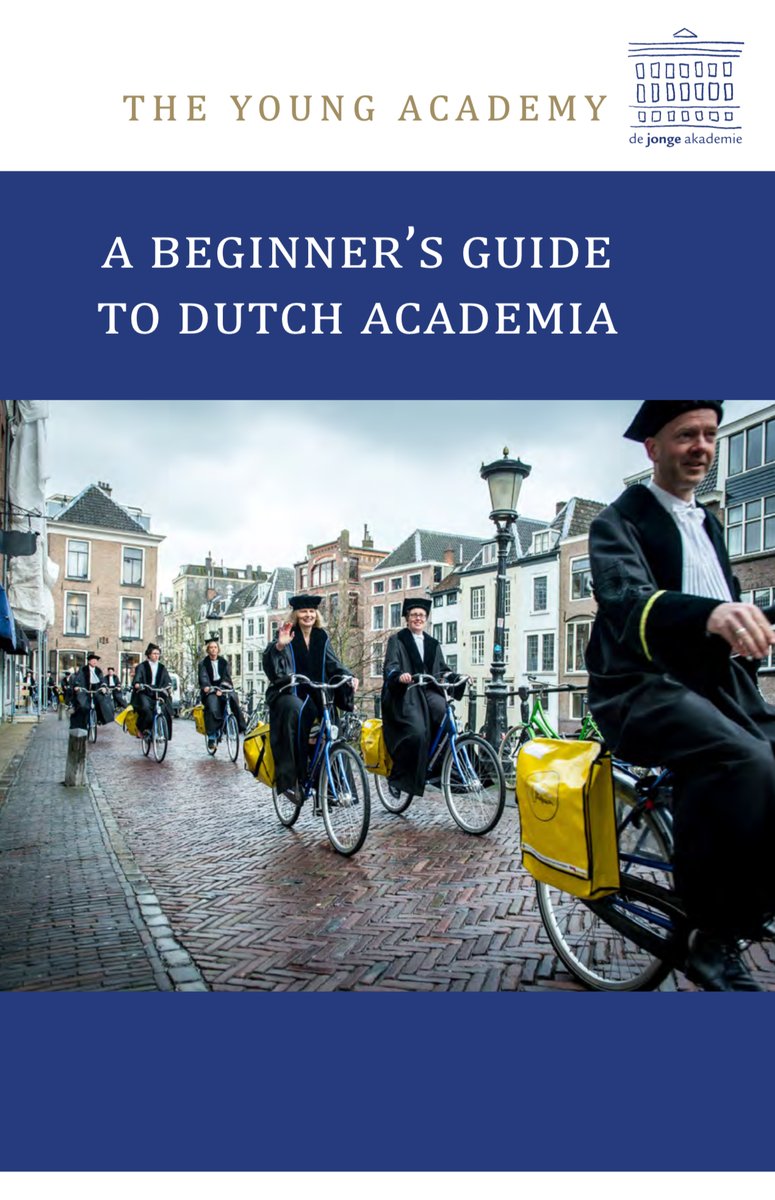What kind of marks are students awarded here in the Netherlands? What exactly is an endowed professor? Where do you apply for research funding? The Young Academy has written a guide for international researchers to help them become acquainted with Dutch academia.
Lees hier het originele artikel in het Nederlands
A beginner’s guide to Dutch academia is the title of the English-language book published by The Young Academy. In around forty pages, it provides a summary of the Dutch academic system and the jargon used in it.
At least it attempts to do so. The introduction includes a disclaimer, stating that the academic world is a ‘moving target of several dimensions’, which means that all kinds of rules and structures differ, depending on the university or the specialisation concerned. They also change, year by year.
But, for example, it’s useful to know what kind of grades students receive in the Netherlands. An 8 is a good mark. An 8.5 or higher is the equivalent of an A+ in the United States. A 3 or lower is rarely awarded and there are hardly any 10s.
Culture of mediocrity
The guide is laced with quotes from an anonymous survey of academics on things that they noticed in the Netherlands. One warns about the culture of mediocrity among students: “You hardly ever need to explain why you award a 9 instead of a 10, but they’ll do anything to scrape through with a 6”, the guide says. Another took a while to get used to the fact that Dutch people quickly start addressing each other by their first names.
But the book mainly features practical issues: where can you apply for research funding, can you bring your partner with you to the Netherlands, what is the situation with maternity leave? The guide also includes a list of abbreviations that are useful to know: CAO, ECTS, OCW, VSNU, WHW…
One of the book’s authors is Utrecht-based professor Christian Lange, originally from Germany. He has been working in the Netherlands for six years. Lange: “I’d have liked to have a book like this when I arrived here.”
Feeling at home
It can often take a few years to understand the system and feel at home, he says. “When you arrive here, you’re inundated with all kinds of things to do and have hardly any time to get to know the system from the inside. You have teaching to do; you have to serve on some committee… Even now, there are still some areas that are a mystery to me, but things are starting to improve.”
The plan is to revise the guide on an occasional basis, perhaps every three years. The Young Academy hopes to see the guide find its way to the international offices at universities.
Lange also says that he would advise all international researchers to learn Dutch. “It really does help when it comes to communicating about your academic work and research valorisation. And the most important meetings here are still always held in Dutch.”
HOP, Bas Belleman
This article was translated by UvA Talen.
Do you have a question or comment about this article?
redactie@hogeronderwijspersbureau.nl


Comments are closed.